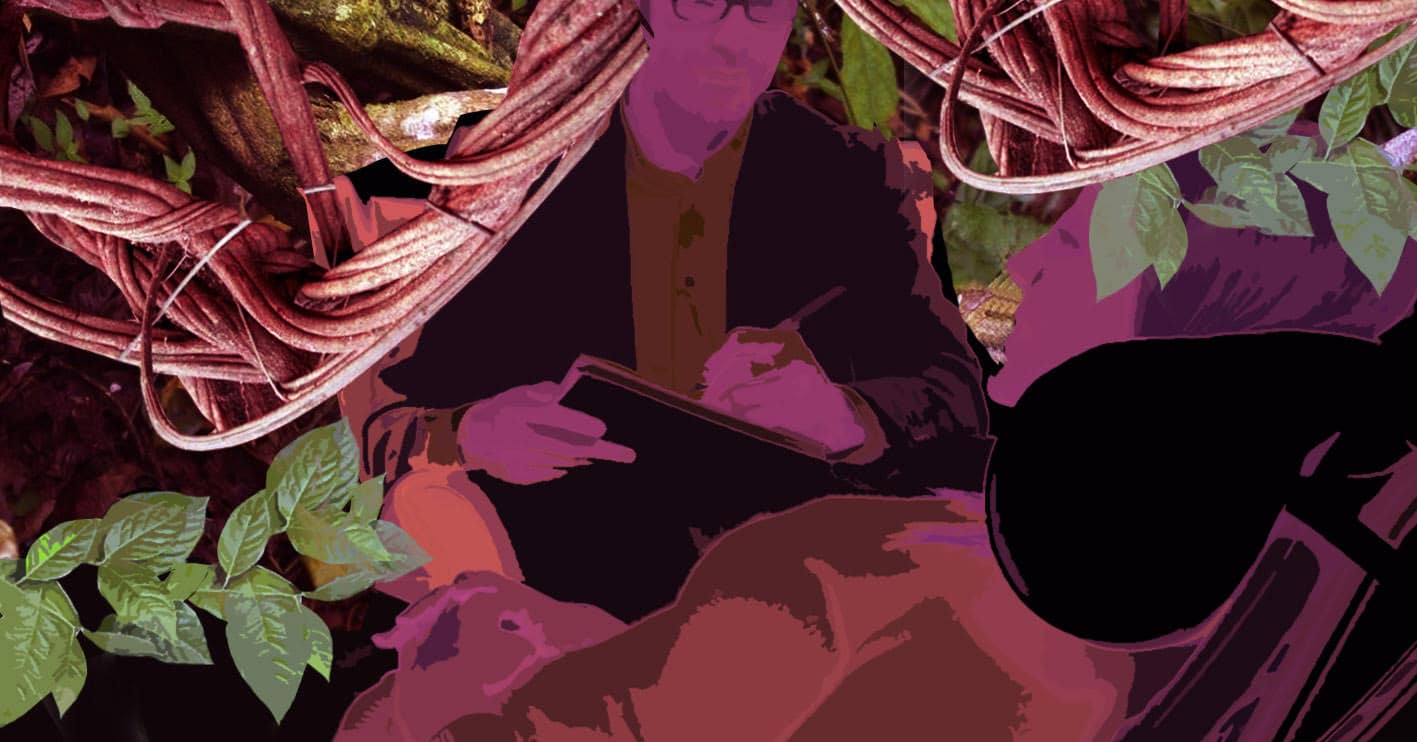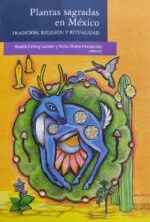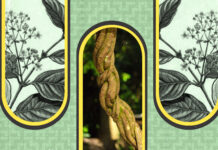- An Open Letter Reply to Dr. Stan Grof - March 28, 2025
- Can Psychedelics Reveal Memories of Sexual Abuse? - August 4, 2020
- Embodied Healing: A Personal Perspective on Resolving Trauma with Psychedelics - January 30, 2019
Very few of us are ever lucky enough to be able to look back on our lives and know the moment that everything changed for the better, though many of us look back and know the moment when everything changed for the worse. As an abuse survivor who struggled with PTSD, I spent many days battling images of traumatic events that intruded upon my waking hours and dreams causing anxiety, depression, and issues in relationships.
As hard as I tried, I was never able to experience a moment of transcendence when I knew everything was changing for the better until I found myself at the Temple of the Moon in the Sacred Valley in Peru. I experienced the sacred plant medicine, San Pedro, lifting the weight off my shoulders I’d been carrying for so many years. The medicine told me, “let me take this away from you. Carrying this is not useful to you anymore.” I carry that moment of healing now embodied within me. I believe that healing work with sacred plants can be one of the most powerful, direct tools on Earth to heal trauma, create new ways of looking at our trauma narrative, and deepen compassion for ourselves and others, including those who have caused us harm.
Healing the Wound of Trauma
The very essence of trauma is when an event, or many events over a period of time, wounds us so deeply our bodies continue to go back to that moment in an attempt to protect us from the harm of the past. While trauma can occur from a single incident, such as a car crash, I’m focusing here on interpersonal or relational trauma; trauma that is sustained when someone uses their position of power to harm another person, as in cases of sexual abuse and assault, physical abuse, and psychological and emotional abuse.
I believe we are being forced to look with fresh eyes at trauma and abuse, both in our individual histories and in our collective responsibility for healing a very wounded world.
With the explosion of clinical research around plant medicines such as ayahuasca and psilocybin mushrooms for treatment of depression and trauma among other conditions, it’s hard not to see them as an exciting panacea for seemingly intractable mental illness. But the story of psychedelics and trauma healing is more complicated than that; I believe we are being forced to look with fresh eyes at trauma and abuse, both in our individual histories and in our collective responsibility for healing a very wounded world.
One aspect of trauma is that it may disconnect the person from their body and from their surroundings. In my own experience, and the experience of clients with whom I do trauma-informed integration work in my psychotherapy practice, I have noticed several things that can happen when using sacred plant medicines, such as psilocybin mushrooms, ayahuasca, and San Pedro, to facilitate trauma healing. Users can experience feelings of safely inhabiting their own bodies, sometimes for the first time in years. They feel connected; connected to others, connected to the world around them, connected to a higher (or, as I like to call it, “wider,” as in encompassing all things) power in the universe. Perhaps paradoxically, we find our way back to control by letting go of control entirely and letting plant medicine do its work.
It may also become possible to see those who cause harm through a more complex lens of causes and conditions that led to their harmful actions.
Another aspect of trauma I witness regularly when working with clients is a rigid adherence to one version or story about the traumatic event. For example, “I should have spoken up right away when I was abused. It was my fault the abuse occurred.” Recent research into the ability of ayahuasca and other plant medicines to enhance creativity and facilitate openness to new ideas suggests to me that psychedelics may also be crucial for helping us to dismantle stories around our trauma.12 We may be able to experience a compassionate recasting of ourselves in the trauma story, as it is never the fault of the abused person that they were abused. It may also become possible to see those who cause harm through a more complex lens of causes and conditions that led to their harmful actions.
Psychedelic Healing in Context: Exploring Systems of Oppression
While it can be tempting to just discuss the stories of miraculous healing (and these stories do exist in abundance), there are also complex and critical issues that arise when considering the healing power of sacred plants. Specifically, I’d like to draw attention to the relationship between social justice and trauma healing, and abuse of power within ceremonial contexts and in the psychedelic community.
Trauma sustained on the interpersonal level is always situated inside a greater context of systemic oppression: structural racism, sexism, homophobia, etc. It’s problematic to extract relational trauma from the systems of oppression in which trauma occurs and expect that we can offer useful, long-lasting clinical solutions without ever considering the context in which a person lives their life.
I question the efficacy of championing psychedelic healing solely on the individual level, especially when situated within the establishment of Western medicine, where survivors then re-enter systems of oppression that gave rise to their trauma in the first place. What happens to the many survivors who lack resources to access safe and legal ceremonial work outside the US, not to mention research studies inaccessible to all but a few (overwhelmingly white) research participants? In what ways do we acknowledge and give back to indigenous peoples who have been working effectively with these sacred medicines for centuries, and whose lives have been negatively influenced by the norms of industrialization from which we enjoy benefits? While these questions seem daunting, we, as a community, are responsible at a minimum for questioning how our own privilege plays a role in our own access to healing and healing stories.
Conventional trauma treatments including medication and psychotherapy can be extremely difficult and expensive to undergo, and often leave survivors with continuing symptoms. Understandably, people are turning to underground facilitators or indigenous shamans outside of the U.S. with the belief they can alleviate their suffering, heal their spirit, and regain control over their lives.
These trends are unsurprising; the Western medical establishment has spent generations trying to wrest the power of healing away from the individual and (often woman-facilitated) healing practices connected to the Earth. American society seems to have been co-opted into a capitalistic, patriarchal, hierarchical system of “healing” that deals primarily with physical symptoms, sometimes mental afflictions, but rarely our spiritual problems. Many contemporary psychotherapeutic modalities fail not only to address the spiritual needs of clients, but also fail to actively engage in dialogue that looks at our trauma in the greater context of social justice and oppression. Healing relational trauma with plant medicine can mean placing the survivor back in a position of control: control over their somatic responses, control over their lives, control to not repeat unhealthy patterns resulting from and perpetuating trauma. This shift does not come from a doctor, therapist, or shaman. It comes from your relationship with a plant.
Healing Ourselves to Heal the World
It’s unwise to discuss healing from trauma with psychedelics without addressing recent events in the psychedelic community wherein women and other harmed parties are speaking out against powerful people (from shamans to community leaders) who have abused them. Just as disappointing has been the response of those in the community who have sought to discredit the accounts of survivors in service of perpetuating the false message of psychedelic purity and community harmony.
If psychedelics alone fundamentally changed users, why would we have so many survivors speaking out about how they were harmed in these contexts?
I ask you: If psychedelics alone fundamentally changed users, why would we have so many survivors speaking out about how they were harmed in these contexts? Because all the plant medicine in the world cannot get through to someone seeking to fetishize the psychedelic experience into evidence of their own power and supremacy. I believe the message of the plants is of compassion, service to others, and service to the Earth; never self-initiated leadership or assuming power over others. When we are in doubt about how our ego is interacting with a psychedelic experience, we can step back and first ask, “has this experience made me more compassionate to all sentient beings?”
Because interpersonal trauma occurs when one person uses their power to harm another, it can be risky to go into any space assuming that our healing is going to come from a therapist or shaman. It’s my belief that we are our own healers working in concert with the medicine. Trauma that occurs in the context of power imbalance can lead a person to unconsciously seek healing relationships with authority figures as corrective measures to address trauma. When those relationships observe healthy boundaries and authority figures act as trusted guides, such as in an appropriate therapeutic relationship, they can actually be very healing. So, what happens when that trust we place in a shaman, therapist or community leader is broken in the form of abuse? What happens when our trauma is compounded by not being believed or silenced when we disclose it?
It’s a radical act to begin to consider the healing of others alongside our own because it is a step toward greater connection and collective power.
Perhaps one approach that encompasses a psychedelically-informed way of thinking about these issues comes directly from wisdom the plants offer: They ask us to see that our own healing is tied to the healing of others and the healing of the Earth; that, when our “cosmic sibling” is abused, it deeply involves us, because their suffering is also ours. It’s a radical act to begin to consider the healing of others alongside our own because it is a step toward greater connection and collective power. The warning expressed by modern society is well articulated by the nature philosopher, Stephen Buhner:3 “You must not extend your awareness further than your culture wants it to go”(p. 19). But, if we choose the path of extending awareness, to consider that our healing will only be fully complete when our communities, environment, friends, and even those who cause harm are also healed, we are taking on a much bigger transformative mission.
In the beginning of my story I shared the image of San Pedro lifting the weight of trauma from my shoulders. That weight not only contained the violence that was perpetrated against me, but the hatred I held toward the people who caused me harm. It was the weight of the blame I placed on myself for being so vulnerable as to not be able to protect myself, but also the blame I placed solidly and without nuance on the traumatized persons who traumatized me. At its core, psychedelic healing is self-healing with the plants as our best guides. I believe they are there to not only assist us in our own healing, but to open our hearts to a world that needs us. The plants are ready to talk. Are we ready to listen?
References
- Kuypers, K., Riba, J., de la Fuente Revenga, M., Barker, S., Theunissen, E. L., & Ramaekers, J. G. (2016). Ayahuasca enhances creative divergent thinking while decreasing conventional convergent thinking.Psychopharmacology, 233(18), 3395–3403. ↩
- MacLean, K., Johnson, M., & Griffiths, R. (2011). Mystical experiences occasioned by the hallucinogen psilocybin lead to increases in the personality domain of openness. Psychopharmacology, 25(11), 1453–1461. ↩
- Buhner, S. H. (2014). Plant intelligence and the imaginal realm: Beyond the doors of perception into the dreaming of Earth.Rochester, VT:Bear & Company. ↩
Take a minute to browse our stock:
Did you enjoy reading this article?
Please support Chacruna's work by donating to us. We are an independent organization and we offer free education and advocacy for psychedelic plant medicines. We are a team of dedicated volunteers!
Can you help Chacruna advance cultural understanding around these substances?














